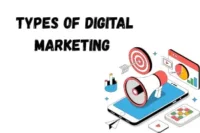Types of Software
Published: 8 Sep 2025
Software is the foundation of modern technology, powering everything from smartphones to supercomputers. But what is software, and why does it matter? In this article, we’ll look at what software is, its various types of software, and how to select the best one for your purposes. Let’s dive in!
What is Software?
Software is a set of instructions that tells a computer how to perform specific tasks. It includes applications, operating systems, and tools that allow users to interact with hardware. Without software, a computer cannot function.
Just like there are different types of inverters for handling electricity, there are also many kinds of software designed to handle different digital tasks.

Types of Software
Software can be generally categorized into several categories. Here are five main types:
1. System Software
System software is a type of software that maintains hardware and serves as a foundation for the performance of other programs. It includes operating systems (such as Windows, macOS, and Linux), utility apps, and drivers that enable computers to function properly. System software operates in the background to maintain consistent performance and stability.
2. Application Software
Application software is meant to help users complete certain tasks such as word processing, online browsing, and media editing. Examples include Microsoft Word, Google Chrome, and Adobe Photoshop. It improves productivity and entertainment based on user requirements.
Technology gives us options everywhere, from choosing between different types of smartwatches for health tracking to selecting application software for work and entertainment.
3. Programming Software
Programming software is created to help developers write, test, and debug code. It includes tools such as text editors, compilers, debuggers, and integrated development environments (IDEs). Examples include Visual Studio, Eclipse, and Code::Blocks
4. Utility Software
Utility software is intended to help manage, maintain, and improve computer performance. It consists of anti-virus software, disk cleansing applications, and backup software. Examples are CCleaner, WinRAR, and Windows Defender.
5. Embedded Software
Embedded software is a sort of software that is specifically built to run on dedicated hardware components. It controls functions in devices such as smart TVs, washing machines, and medical equipment. Examples include firmware in routers, automotive navigation systems, and industrial machinery.
Here, embedded systems work much like how different types of powerbanks provide specific charging features depending on the device.
How to Choose the Right Software?
Choosing the right software depends on your needs, budget, and system compatibility. Here are key factors to consider:
- Identify Your Needs: Determine whether you require system software, application software, or specialist tools for tasks such as design, programming, and business management.
- Check Compatibility: Ensure the software is compatible with your operating system and hardware specifications.
- User-Friendliness: Choose software with a user-friendly design that is suitable for your skill level.
- Features & Functionality: Compare features and select software that fulfills your specific requirements efficiently.
- Security & Updates: To protect your data, choose software with regular updates and strong security features.
- Cost & Licensing: Consider whether you require free, subscription-based, or one-time buy software based on your budget.
- User Reviews & Support: Check reviews and ensure good customer support for troubleshooting assistance.
Conclusion
Software is essential in our daily lives because it allows computers to run and operate efficiently. From operating systems to specialized applications, the appropriate software can boost productivity and improve the user experience. We hope this article helps you understand the many types of software and how to select the best one for your requirements.
Frequently Asked Questions [FAQs]
Here are some common questions and clear answers about the different types of software to help you understand better:
The main types of software include System Software, Application Software, Programming Software, Utility Software, and Embedded Software.
System software manages hardware and provides a platform for other software. Examples include operating systems like Windows, macOS, and Linux.
Application software is designed for users to perform specific tasks, such as Microsoft Word for document creation, Google Chrome for browsing, and Adobe Photoshop for image editing.
Popular free software includes Linux (system software), LibreOffice (application software), and Visual Studio Code (programming software).
Before selecting software, consider your needs, system compatibility, features, pricing, security, and customer service.

- Be Respectful
- Stay Relevant
- Stay Positive
- True Feedback
- Encourage Discussion
- Avoid Spamming
- No Fake News
- Don't Copy-Paste
- No Personal Attacks

- Be Respectful
- Stay Relevant
- Stay Positive
- True Feedback
- Encourage Discussion
- Avoid Spamming
- No Fake News
- Don't Copy-Paste
- No Personal Attacks





